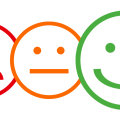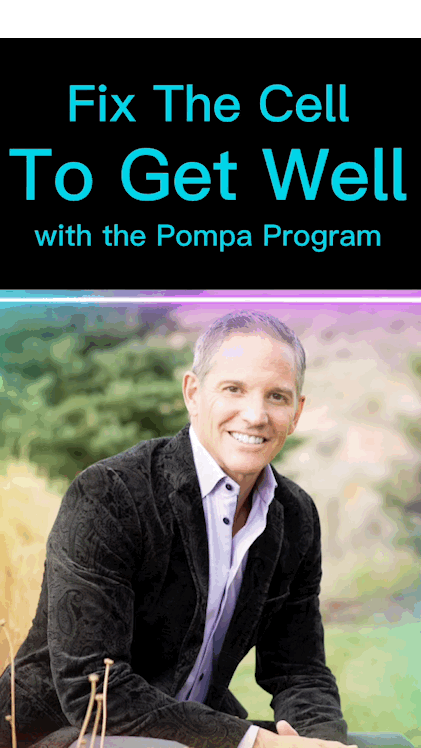March 9th, 2016 •
Comments Off on Shouldn’t Things Be Perfect?

The desire to be perfect traps and burdens many individuals in their lifes. Perfectionism can imprison you with unrelenting stress and lead to stress-related conditions such as Adrenal Fatigue. Are you someone who always wants to do things perfectly? Is nothing ever good enough for you? Are you constantly judgemental? If you have answered “yes” to all of these questions chances are you are a chronic perfectionist.
Perfectionism is often considered a positive trait. Perfectionism tends to be rewarded by our society and perfectionists are admired for their insistence on setting high goals and their relentless drive to meet those goals. Perfectionists typically are high achievers, but the price perfectionists pay for success can be stress, unhappiness and dissatisfaction. In this article we’ll have a look at why perfectionism is unhealthy and why it is better to strive for excellence.
Some signs of perfectionism are () :
- You always have to be in control
- You need to do everything yourself
- You are an all-or-nothing person
- You beat yourself up
- You have strict rules about how you and others should behave
- You don’t like feedback
- You define yourself by your accomplishments
- You are highly critical of others
- You are eager to please
- You have a hard time opening up to other people
- You are a procrastinator
What Is Perfectionism?
In his book “The Pursuit of Perfect” Dr. Tal Ben-Shahar discusses two aspects of perfectionism:
“… psychologists today differentiate between positive perfectionism, which is adaptive and healthy, and negative perfectionism, which is maladaptive and neurotic. I regard these two types of perfectionism as so dramatically different in both their underlying nature and their ramifications that I prefer to use entirely different terms to refer to them. Throughout this book, I will refer to negative perfectionism simply as perfectionism and to positive perfectionism as optimalism.” – Tal Ben-Shahar from “The Pursuit of Perfect”
While not everyone agrees that there exists something as “positive” and “negative” perfectionism there is no doubt that perfectionism can be very counterproductive and bad for your health.
Perfectionism is the desire to be flawless, a fear of imperfection, seeing errors as personal shortcomings, and viewing perfection as the only way to personal acceptance (). It has been linked to exhaustion and proneness to disease, also known as burnout. To illustrate this: British researchers found in a recent study that burnout was more prevalent within the work environment, where perfectionism was supported by external pressures and lack of validation (),().
If you think about it for a second, the word “perfection” is a concept, it is created by humans and does not exist in the outside world. Did you ever give the perfect speech? Have you ever experienced the perfect day? Of course you could argue from a philosophical point of view that if the concept of perfection exists, so then is perfection part of our reality but that’s a different discussion altogether. If you think about it, there is no perfect concept, thing or state. Perfection is subjective and there is always room for improvement. So, by aiming for perfection you set goals that are so unrealistic that you can’t accomplish those goals and you will never feel satisfied. Why then strive for something that does not exist?
Well, here is the why. We constantly are bombarded with images that are “labeled” as “perfect”, especially by way of the Internet, TV commercials, TV series and films, in videogames, music videos, printed ads and even in the figures of toys. These images feed our minds. They feed our deepest insecurities and stimulate us to believe we must be someone different from who we are. Basically, we cultivate a pursuit of perfection in our culture and we hold ourselves to the impossible standards of perfection, creating stess and psychological pain.
Perfection VS Excellence
As Jim Rohn, one of my favorite motivational speakers said:
The essence of life is growth. It is doing the best you possibly can.
Here’s what is interesting: Humans are the only life form that will do less than they possibly can. Humans are the only life form that will settle for less. All other life forms except human beings strive to their maximum capacity. How tall will a tree grow? As tall as it possibly can. You’ve never heard of a tree growing half as high as it could. No. Trees don’t grow half. Trees send their roots down as deep as possible. They stretch their limbs up as high as possible, and produce every leaf and every fruit possible.
As matter of fact, you’ve never heard of a human growing halfway-physically, that is. We keep growing until we’re done. It’s genetically coded. That’s a part of life that we can’t control. It’s the growing of our minds that we can control, but we tend to neglect this. It tends to get away from us. All life forms inherently strive toward their maximum potential except human beings.
Why wouldn’t we strive to become all we can be, to fulfill our potentials? Because we have been given the dignity of choice. It makes us different than alligators and trees and birds. The dignity of choice makes us different than all other life forms.
And here’s the choice: to become part of what we could be, enough to get by, or to become all that we can be. My best advice for you is to choose the “all.” Earn all you can. Make all the friends you can. Read as many books as you can. Develop as many skills as you can. See and do as much as possible. Make as much fortune as possible. Give as much of it away as possible. Strive for the maximum. There’s no life like it. I’m telling you, since I’ve gotten on track, I’ve never looked back. Pick up the challenge. Go for it. When you’re focusing on growth, it’s easy to do all you can. It’s easy to succeed. It’s easy to have financial freedom. The more you do, the more you get.
Being the “best you can” or striving for excellence () is fundamentally different from the need to be perfect or striving for perfection.
The biggest difference between the two is that perfectionism is centered around “doing the thing right“, how it appears and whether others think it is done right. Excellence on the other hand is about “doing the right thing”. It is centered around the reason for the task and the results for it to be a succes.
The table below will show you why you should always strive for excellence instead of striving for perfection:
Perfection
|
Excellence
|
| There is nothing better |
The best we can hope for |
| Unattainable |
Achievable with effort and planning |
| Failure inevitable |
Sense of achievement |
| Depression |
Contentment |
| Being right |
Being willing to be wrong |
| Fear |
Taking a risk |
| Anger & Frustration |
Powerful |
| Control |
Spontaneous |
| Taking |
Giving |
| Doubt |
Confidence |
| Pressure |
Natural |
| Results focused |
Process focused |
| You’ll never be good enough |
You’re one of the best |
| Mistakes are not tolerated |
Accepting of mistakes |
| Inflexible |
Flexible |
| Despondent |
Motivated |
|
|
| Author: B. Browne, Ph.D. |
|
In Summary
Now that you understand the disadvantages of striving for perfection and the advantages of striving for excellence you should look at yourself and try to see whether perfectionism has taken hold in areas of your life. Make sure to remove perfectionism from all levels of your life and adopt a healthy mindset of excellence instead. Accept the fact that perfection does not exist, nobody is perfect. Excellence does exist, it is a process, a direction and not an end-point. Just remember, you don’t have to always do things right and there is always room for improvement!
To all you “perfectionists’ reading this, did this post open your eyes? Please get in touch below and tell me. Also, if you are reading this and you know a perfectionist in your life, feel free to share this post with them 🙂
References & Further Reading












